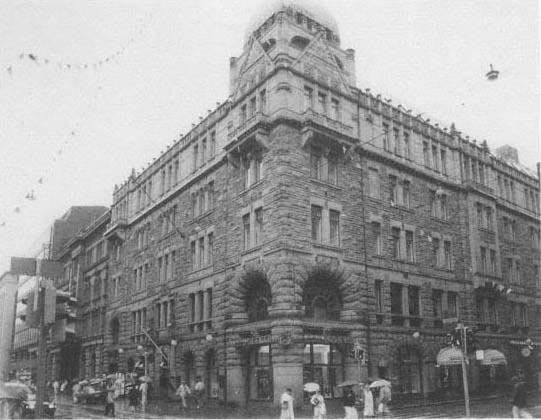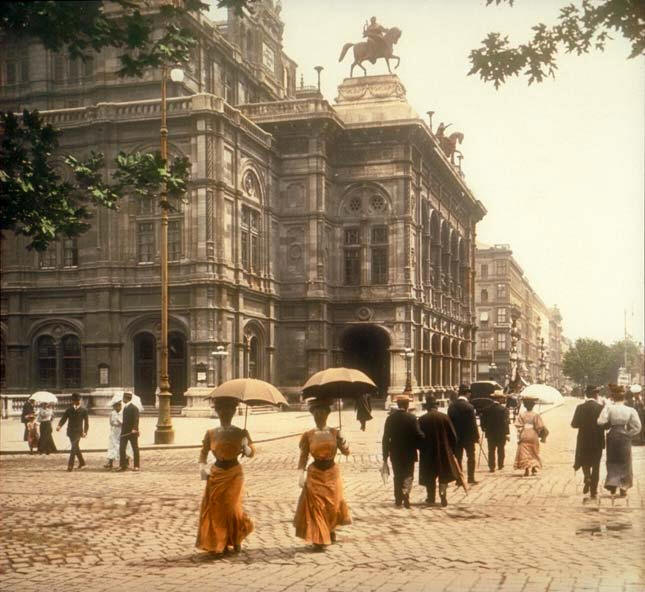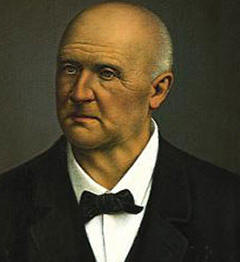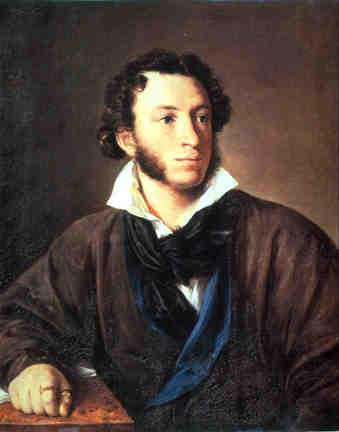RETURN TO FINLAND – ENGAGEMENT
He spent his summer holidays in Finland.
Uncle Pehr had died in Turku the 4 January 1890. As to Aunt Evelina,
who was suffering from cancer and had undergone an operation, she
had returned to Loviisa, where everything was prepared for the
return of the prodigal son. Covered with debts, Sibelius sought to
borrow money as soon as he retuned to Helsinki. He completed his convalescence in Loviisa and
from there went to the Wegelius’ at Granholmen. In spite of the
episode with Bettsy Lerche and a year’s separation in Berlin, Aino
waited for him with impatience. The 2 August, from Eteri, the summer
home of the Järnefelt’s in central Finland, Armas wrote to his
future wife Maikki Pakarinen: ‘Aino arrived one evening just when I
was about to go to bed, […] and she ordered me to put out the candle
so that she dare talk to me. I put it out, and she immediately threw
herself into my arms crying so much she could not speak. I consoled
her as best I could, and finally succeeded in getting her to talk.
She asked me, when I had seen Wegelius, to write him something about
Sibelius. The poor girl, she still loved him. She said that she
would go to Helsinki to see him again one more time. The poor girl!
She said that she had wanted to talk to me for a long time, but was
frightened I would get angry. I promised and consoled her, and I
finally succeeded in stopping her crying. Then she went to bed.
Tears came to my eyes. It was really a sad affair.’

Help up by a heavy storm, Sibelius arrived Etseri
the day that Aino returned to her father’s, the governor, in Vassa:
seventy years later, she recounted to Tawaststjerna that sitting in
her train, she saw Jean getting out of his on another platform. The
23 August, Armas wrote to his sister: ‘Sibelius has arrived. He is a
little weak, but in spite of that better than before. I don’t really
know what to say to him, because here we live our everyday life,
only you can interest him. I avoided speaking to him about you,
because I don’t know what attitude to adopt. We play together
sometimes.’ Aino and Jean ended up by meeting together again in
Vaasa, where they played together, he on the violin and she
accompanying him on the piano. Jean spoke of this visit in a letter
to Aino written in Vienna the 26 February 1891: ‘When I left Vaasa,
when you were all together on the platform, I whispered something in
the ear of Armas, as you no doubt remember. However, he did not pass
on the message [with which] I thanked you for accompanying me [on
the piano]. Armas told me that he did not want you to think of me. I
than understood for the first time that you had never really
forgotten me. I left Vassa in a strange state, half idiot and half
composer. […] When I came down and saw you in the hall that last
afternoon, I saw that you had tears in your eyes. I already loved
you […] but I would have never admitted it, even for millions.’
1st September 1890, her sister-in-law Emmy
Järnefelt (1965-1937), nee Parviainen, wife of Arvid, wrote Aino a
calming letter, informing her amongst other things the Sibelius’
‘illness’ was much less serious than he himself imagined. At the end
of the month, the 23 September, Jean and Aino attended a musical
evening at the Institute in Helsinki. After the concert Jean
accompanied her to her brother Arvid’s, where she was
staying, and there before the door he asked her to marry him, and
she accepted. The letter of the 29 February 1891, contains these
words: ‘Then when I held you in my arms, I thought that you were the
ideal that I had waited for.’ The following night, Aino read the
manuscript for Yksin of Juhani Aho, but too late for it to be of any
influence, in spite of the declarations of love by the
writer-narrator to her regard. On this occasion Sibelius behaved
like a man of the world: when she returned to Vaasa, Aino found her
train compartment strewn with flowers.

VIENNA - OCTOBER 1890 TO JUNE 1891
‘Viena 1890-1891’ was to Sibelius of an entirely
different importance than ‘Berlin 1889-1890’. It was there he
encountered orchestral composition, where he discovered Bruckner,
where he understood what the Kalevala could signify for a young
Finnish artist and it is where for the first time that he posed
serious questions concerning himself. Moreover, his sojourn in the
Austrian capital nourished his sensuality. He sometimes and very
frankly admitted it to Aino, to which she was careful not to react,
no doubt because of her sensible and experienced mother, and her
brothers who were also just as wild. From 30 November, Jean wrote
that he thought of no other woman, even though ‘Vienna is full of
beauties’. And the 24 January 1981, he did not hesitate to mention
that a the sister of a Viennese student friend, had asked him for one
night to forget his fiancée who was so far away, adding: ‘ Vienna is a very nice city, but it is best not to be
there alone.’
He arrived there the 25 October 1890 not knowing
with whom he was to study. Tow weeks after he bought the German
version of the Traité général d’instrumentation by Hugo
Riemann, which he used in composing Kullervo. His
first impressions were the most favourable. ‘[The city] is exactly
to my taste. […] Gaity and light.’ ‘This air
makes me crazy. My head is full of waltzes, that remind me of
Schubert’s waltzes’ . ‘Here in Vienna the
sun is shining, a letter from Aino and money from you!’. ‘The whole of
Vienna rings with waltzes and
laughter’. He lived in the fourth
district, on the second floor of 1, Waagasse, at the corner of
Wiedner Hauptstrasse, very near the former residence of Gluck. He
enthusiastically explored the cellars of Esterhazy and from the 28
October, attended a performance of Don Giovanni at the The
Royal-Imperial Court Opera Theatre, which made such an impression on
him that when he returned home, he could not sleep and spent the
night sketching out a violin concerto. Shortly after he saw Wagner’s
Tristan, ‘set in a splendour the goes beyond all imagination’
he wrote to Wegelius. For a time he lost all his sense of
reality. About the 4 January 1891, ‘Jean Sibelius aus Finland’
visited Beethoven’s house in Heiligenstadt.
Robert Fuchs and Karl Goldmark
Dismissed by Brahms, Sibelius was later presented
to him by chance in the famous Leidinger café: at least that is what
he told Ekman. Officially he was in Vienna to study orchestration.
The 29 October, he informed his mother and Evelina that
unfortunately, the great orchestra leader Hans Richter (1843-1916),
then director of the Vienna Philharmonic concerts, accepted no
students and that Bruckner was ill. He wrote the same day to Aino
that ‘Bruckner was mortally ill’. Hans Richter oriented him to the
then fashionable composer Robert Fuchs (1847-1927). Professor of
harmony and counterpoint at the conservatory, Fuchs had counted
amongst his students, fifteen years earlier, Gustaf Mahler and Hugo
Wolf, and more recently Alexander von Zemlinsky. Wegelius sent a
letter of recommendation from Helsinki to Karl Goldmark,
acclaimed since the triumph of his opera The Queen of Sheba
in 1875. He had been part of the jury in 1881 that had rejected
Das klagende Lied of Mahler, and Sibelius had certainly heard
him in November 1889 his very recent overture Der gefesselte
Prometheus (Prometheus Enchained). Like from Goldmark he only
received private lessons from Fuchs, composer of innumerable
serenades and who was nicknamed for this reason ‘Serenaden-Fuchs’.
The 12 November, after several unfruitful attempts, he finally met
Goldmark, who was wearing his dressing gown and slippers. Sibelius
showed him his quartet for strings in B-flat major and was advised
by the Hungarian follower of Wagner to use Haydn, Mozart and
Beethoven as models rather than Berlioz and the composer of
Tristan: ‘Work on your ideas in depth, because in depth they
will have more character. Beethoven went over his own fifty times!’
The 19 November, he brought Goldmark ‘an overture
containing (according to Goldmark) manches Schlechte and manches
Gute, als Anfang ganz gut ' [some bad things and some good things,
for a start not bad at all]. He found my instrumentation adequate,
except at one place (flutes too wild). He then criticised the piece
in more detail. In total, I stayed with him half an hour. He wrote a
note certifying that I had commenced my studies. […] To be his
student is of great prestige for me everywhere. It was teaching to
my taste’ (to Wegelius). On this point it can be noted that Goldmark
had a niece, who when Jean’s visit was announced arranged to be
present. The 11 January 1891, Sibelius,
nevertheless confirm, again to Wegelius: ‘I have come to the
conclusion that I need stricter lessons than those dispensed by Goldmark. Fuchs is a clever orchestrator, professional down to his
fingertips, and very happy as a composer. Above all because he can
easily arrange for the execution of certain works through his
influence on Jakob Grün.
Sibelius had hoped that his quarter for strings
in B-flat major would be heard in Vienna, with the help of Robert
Fuchs and the Professor Jakob Grün, a very influential personality
in the Tonkünstlerverein, however, he was disappointed. The
Rosenberg Quartet, composed of conservatory students and in which he
himself had played as second violin, did however, rehearse the work
twice. The 15 February, thanks to Adolf Paul, it was played in
private in Berlin: ‘Sinding was very impressed by your quartet.
Talent! And Imagination! And good ideas!’ Adolf Paul told to Sibelius,
16 January. Another disappointment awaited him: hoping to become
violinist in the Vienna Philharmonic Orchestra, in January 1891,
Sibelius failed an audition and cried with frustration. He
nevertheless continued to manifest his taste for luxury and spending
his evenings drinking, which won him the nickname der Graf
(the Count) from his friends. One of his first purchases in Vienna
was a new top hat. His shirts were always immaculately white and his
clothes impeccably pressed. ‘I am poor, but by an irony of fate I
have all the tastes of the rich,’ he wrote to Aino the 12 March. He
was then slim with a head of abundant blond hair.

Musical and Literary Perspectives – Anton
Bruckner
As had already happened in Berlin, his role as a
Nordic musician was the source of different misunderstandings. After
having heard the Grieg’s concerto for piano in November 1890 at a
philharmonic concert, he wrote to Aino the 11 January 1891: ‘People
here are very conservative. Though Grieg worked in Germany for
almost thirty years, he only succeeding in being recognised just a
few weeks ago. He is the only well known person from the North here.
They always speak to me of ‘your compatriot Grieg’, which gives you
an idea of the ignorance we other people of the North subject to.’
The previous evening, he had ‘seen Egmont [by Goethe], music
by Beethoven […] very beautiful. I cannot stand German writing, it
is filled with pathos, even for the most insignificant things’.
Severely criticised by Fuchs – who had treated one of his composition
essays for orchestra as ‘rudimentary and primitive’ – led him to
complain of the backward side of the Germans in general and of the
Austrians in particular: ‘They are […] insensitive to new trends
both in art and in literature. They reject the French and the
Russians, and it is impossible to talk to them of Nordics without
them being [treated] as ‘barbarians’. From all evidence, [they] have
had their time. They produce no one comparable to Zola, Ibsen,
Tchaikovsky. They see everything with blinkered eyes, and in
addition these blinkers of of very poor quality’ he wrote o Aino, 8 January
1891. Sibelius exaggerated somewhat, but such remarks
announced his future difficulties with the German critics. In the
same letter to Aino he admitted: ‘The Germans think that pessimism
comes from Russia and from the North, and for the moment I would
tend to agree with them.’
His admiration for Zola, who he however
reproached for not having brought realism to its logical conclusion,
is seen by his reading in Vienna of Thérèse Raquin. In his
letter to Aino dated 13 December 1890, he draws the following
surprising conclusions: ‘My vice consists of all the inclinations a
man could have, perhaps even more. But that should not frighten you,
because being very much concerned with art, I would never become
brutal.’ In addition, he advised her not to read Nana: Zola
has written certain things that you should not bother yourself
about. Please understand me, and do not imagine me as trying to give
lessons’ (1 April 1891). Christmas night, he in turn read Juhani
Aho’s Yksin, which Aino had given him, and was very troubled:
‘I devoured this book once I had started it. I recognised myself
everywhere. […] Poor devil! At the end, I almost had tears in my
eyes, and had the impression of having no right to you, but
immediately this thought made me feel ashamed. For me he is surely a
dangerous rival, and I am surprised that you preferred me. [..] I
must admit that I was decided to go and find Aho with a pair of
pistols and let theme decide our fate. You must think that I have
become mad, like Don Quixote, but from my earliest age I have often
heard that such an affair could only be resolved by a duel to the
death’ (24 December 1890). Jean waited twelve days before posting
this letter, and then assured Aino that given his responsibility
towards her, a duel was out of the question. He also added that in
any case Finland needed men like Juhani Aho. He also
read Eugene Oneguine by Pushkin, in raptures he sent it to Aino,
and The Kreutzer Sonata by Tolstoy, that he detested for its
condemnation of physical love though recognising it as chef d’oeuvre.
About three weeks after his arrival in Vienna,
Sibelius informed his mother of his engagement. The 1 November 1890,
he announced that in his next letter he would tell her a ‘secret’,
and in the letter of the 10th of the same month - to
Evelina also – was written: ‘Happily you have well understood that
house in Loviisa need not be put up for sale. In will be even more
useful for us, as I soon hope to have a young wife. Do not imagine
that this engagement will be like those before. I have sown more
wild oats than others, and I needed to. I ask you to please welcome
my beloved warmly as you can. She is an extraordinarily serious and
profound person. You will certainly like her. She is very practical
and knows how to cook, etc. In good health too and charming from
every point of view.’ The reactions of his mother and his aunt, who
had become prudent by his ‘previous engagements’ with Betsy Lerche
and perhaps others, disappointed him enormously: ‘My dearest girls,
Mama and Eva,. I am very sad not to have had the slightest
congratulations about my engagement. Linda Hilma [the
wife of Uncle Otto] and others have written to congratulate me, but
from you my nearest and dearest, not a word. Do not think it is just
a prank, it is really very serious. I would so much like to send
your letters to my Aino’ (2 December). Fifteen days later the
situation changed for the best: ‘My Aino sends you her best wishes
and thanks you for yours’ (18 December to Maria Charlotta). ‘I am
enclosing a photo of my fiancée She sends you her most sincere good
wishes from the bottom of her heart’ (26 December to Maria
Charlotta). ‘Almost every day I have a letter from Aino. She is such
a nice girl. […] Do not think that I love you less. I am still your
boy. I still have your photos by my side, like that of Aino (25
February 1891, to the two ‘Dearest girls’). It was however, uniquely
to Evelina that Sibelius wrote these words on Christmas Eve 1890:
‘It seems to me that Papa was taken away from us so that I could
turn my love to you.’